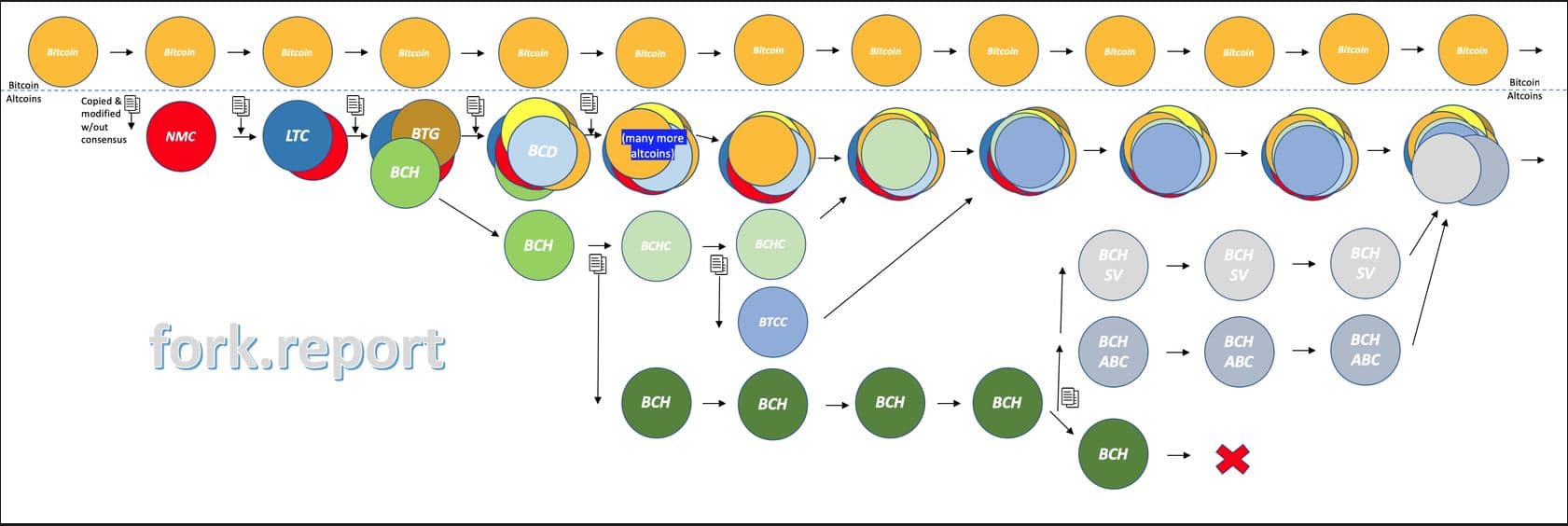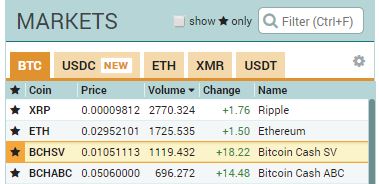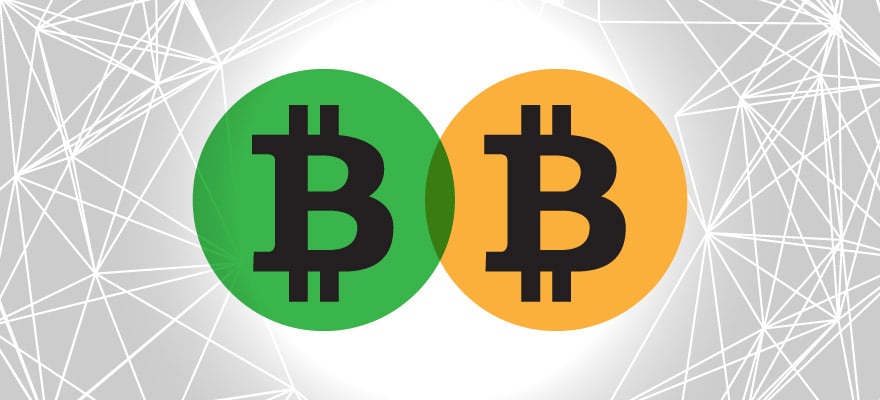BitMEX Research has found that the 'hash war' that has been raging between the two versions of Bitcoin Cash since last week has cost the network as a whole over $6 million in revenue.
Hash war estimated costs live update
Combined totals: * Estimated leasing fees: $8.1m * Combined gross losses: $6.1m Even assuming cheap energy costs, SV miners have a negative gross margin of 353% & $1.4m of gross losses. @CalvinAyre @ProfFaustus cant keep this up forever. pic.twitter.com/CdTQm0vVf4 — BitMEX Research (@BitMEXResearch) November 19, 2018
Such is the fall in value that it is currently 84 percent more profitable to mine Bitcoin than it is to mine Bitcoin Cash, according to coin.dance. This is remarkable because Bitcoin mining has not been a profitable activity for quite some time, except for entities that can do it in bulk.
Some background
Bitcoin Cash, like Bitcoin, works by transactions being recorded on the Blockchain , which is literally a chain of data blocks. This is powered by users, who assign computing power ('hash rate') to the network to validate transactions. This process is known as mining because rewards are given for successful validations. Miners can decide which blockchain they want to work on, which at the basic level means deciding which cryptocurrency they want to earn. However sometimes a single chain splits into two paths, which can be because the relevant cryptocurrency has been upgraded by a development team, and some miners decide to continue working on the previous version of the token.
In some cases both chains will claim to be the original coin, which leads to a dispute. This is exactly how Bitcoin Cash was created. The current dispute is because two different teams of Bitcoin Cash developers ('ABC' and 'Satoshi Vision') applied different upgrades to Bitcoin Cash at the same time, leading to a splitting blockchain and two new Cryptocurrencies .
In this case, the animosity between the groups has been particularly intense.
So, we have ABC preparing a defense just like the French did in 1938
They have drawn the lines with a max 10 block reorg strategy allowing an attacker to secret mine and reset with the DAA over and over... Let us see how that goes pic.twitter.com/xX5oAF6hL2 — Dr Craig S Wright (@ProfFaustus) November 21, 2018
Why is it not profitable?
The Bitcoin blockchain (and its spin-offs) is designed to make mining more difficult and pay less as more coins are released. This protocol is an intrinsic part of the system and is designed to maintain the value of the coins. The result is that while once it was possible to generate bitcoins on your home computer, now you need a specialised mining computer, which will eat a lot of electricity. Furthermore, one machine most likely will not get you anywhere anyway, because mining pools/mining companies collect thousands of machines, making money by working at scale. Single operators can no longer compete.
The fact that it is now less profitable to generate Bitcoin Cash than it is to generate Bitcoin shows just how damaging this soap opera has been to the network.
Which side is winning?
The good thing is that blockchain information is completely open, so the market decides which version is the 'winner, so to speak. The bad news is that this particular dispute is far from being decided.
For example, Calvin Ayre, a millionaire who manages a mining pool devoted to Bitcoin Cash SV, accused the other side of "cheating" in a blog post published yesterday, and called for exchanges to rename Bitcoin Cash ABC to 'Bitcoin ABC' (BAB), and Bitcoin Cash SV to 'Bitcoin SV'. This would mean that the name 'Bitcoin Cash' would disappear.

Source: fork.report
However, exchanges are far from a consensus on this subject. On both Binance and Poloniex, 'Bitcoin Cash' has been replaced by 'Bitcoin Cash ABC' and 'Bitcoin Cash SV'. On Binance, ABC is trading better:

Source: binance.com
On Poloniex, the opposite:

Source: poloniex.com
Bitfinex has taken Ayre's advice and renamed Bitcoin Cash ABC to Bitcoin AB. BAB is currently rising in value at the other's expense.

Source: bitfinex.com
Kraken has decided to allow Bitcoin Cash ABC to keep the name Bitcoin Cash and the other Bitcoin SV.
Kraken takes the Thomas Riker approach to resolving name disputes. It can be summarized as proximity-weighted accumulated mind share. Public opinion matters but, generally, those closest, with the deepest knowledge of and most historical influence on the identity decide (not Pow)
— Kraken Exchange (@krakenfx) November 16, 2018
To those of you unfamiliar with Star Trek TNG: Thomas Riker was the duplicate created of Lieutenant William Riker of the USS Enterprise in a transporter accident; both had equal claim to the name, but the Riker that received the most screen-time ultimately kept the original name.
According to coin.dance, the ABC version controls a large majority of the network computing power, as you can see below:

Source: coin.dance
But the overall effect on the network has been fairly dire. BitMEX finds that SV miners are earning -353 percent by mining the coin, and notes that the entities subsidising their activities "cant [sic] keep this up forever." Interestingly, supporters of Bitcoin Cash SV have been accusing supporters of Bitcoin Cash ABC from paying miners to work on their version of the blockchain.
No one wins a war. Some just lose less than others.
— Roger Ver (@rogerkver) November 18, 2018


















